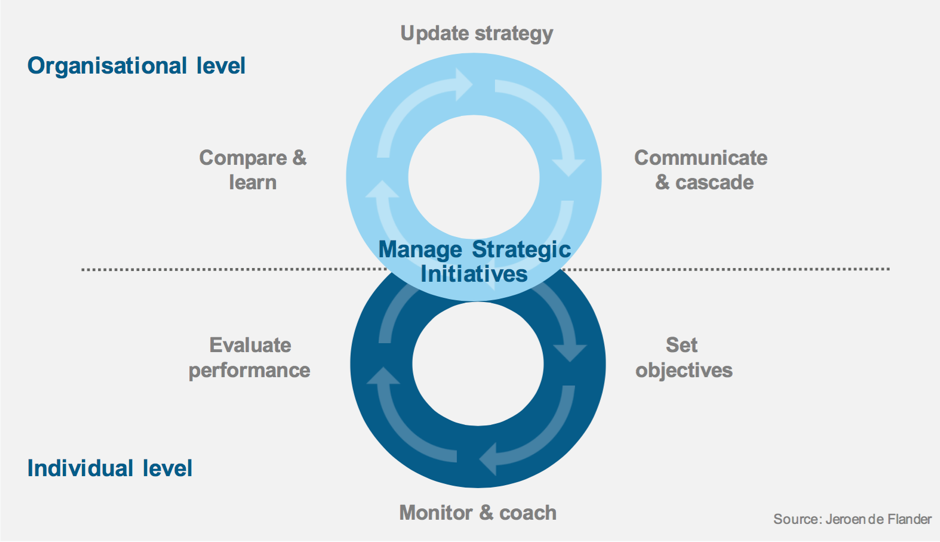At Whitecap, we believe that the key to success of a great strategy lies in its successful implementation. If this is the case, then the path to great implementation is hugely influenced by the appropriate use of Key Performance Indicators (KPIs).
From our experience, we believe that most CEOs would agree with these statements, so it was somewhat surprising when Geckoboard recently reported that 49% of SME owners in the UK fail to identify any KPIs. Furthermore, 31% of SME owners said the key numbers they do track were never reassessed. Paul Joyce, CEO of Geckoboard, says:
“With so much available data, entrepreneurs are forgetting to identify which metrics and data are most important to their business using KPIs. This unfortunately means they’re struggling to focus their business on what matters for success. If you’re not keeping a close eye on critical business metrics and sharing progress against those KPIs with your team, how can you expect your business to grow? …There are so many things that are outside of an entrepreneurs control, but establishing and tracking key company data is not one of them”.
Whilst this quote references entrepreneurs, the issues and challenges associated with identifying and driving relevant KPIs to deliver commercial performance are just as critical for mid-Cap and Corporate businesses. There are three key questions that we help business leaders address when developing or reviewing KPIs:
1) What is the key to setting good KPIs?
2) What should KPIs actually measure?
3) How should KPIs be used within an organisation?
1) What is the key to setting good KPIs?
There are three key characteristics of strategically valuable KPIs:
• Core to the success of the business – indicators that measure areas which are not core to the business will often be ignored and a time waster.
• Measurable and actionable – indicators that are vague and unclear you and others will struggle to understand and interpret them correctly.
• Applied consistently – indicators that are monitored inconsistently and not on a regular basis, the comparison and the monitoring for the indicators are invalid and not any more meaningful.
The execution phase is critically important as it provides the performance reporting and the analytics comparing the different performance indicators and demonstrate how they correlate with each other. Monitoring KPIs in one dashboard comes with many positive benefits.
2) What should KPIs actually measure?
Firms of all sizes and sectors will have a range of KPIs that can be applied at a corporate or functional level, and at different levels of seniority. They can include any of the following areas:
Financial measures
• Sales, Margin, staff cost or contribution by …
Customer measures
• Repeat customers, customer feedback or average spend per customer
Staff measures
• Sick days, staff turnover or staff complaints
Operational measures
• Referral scheme, client complaint vs client satisfactions or most popular product
3) How should KPIs be used within an organisation?
According to PwC: “KPIs are important measures used in your business to provide feedback on performance and they can be used at any level of the organisation”.
It’s certainly true that KPIs should not be restricted to the boardroom and also that they should not just be linked to financial data. Geckoboard’s survey reveals that half of British staff admit that their overall performance is compromised when they are not made aware of key company information and metrics. Geckoboard’s survey revealed half of UK employees feel their overall performance is compromised when they are not made aware of key company information and metrics.
Jeroen de Flander, recognised Strategy Execution specialist states: “You can have the best strategy implementation process in the world, but if your managers don’t get it, its worthless”. The obvious way to help ensure understanding of the strategy and the key business objectives, is to develop and review aligned organisational and individual KPIs, as indicated in the model below:

When we work with clients on developing and implementing their strategies, we help the senior management team identify and focus on the KPIs that are going to most effectively drive the desired strategic, business and individual outcomes. KPIs are neither new nor ground-breaking, but they remain one of the most valuable tools available to senior executives and managers in all businesses.